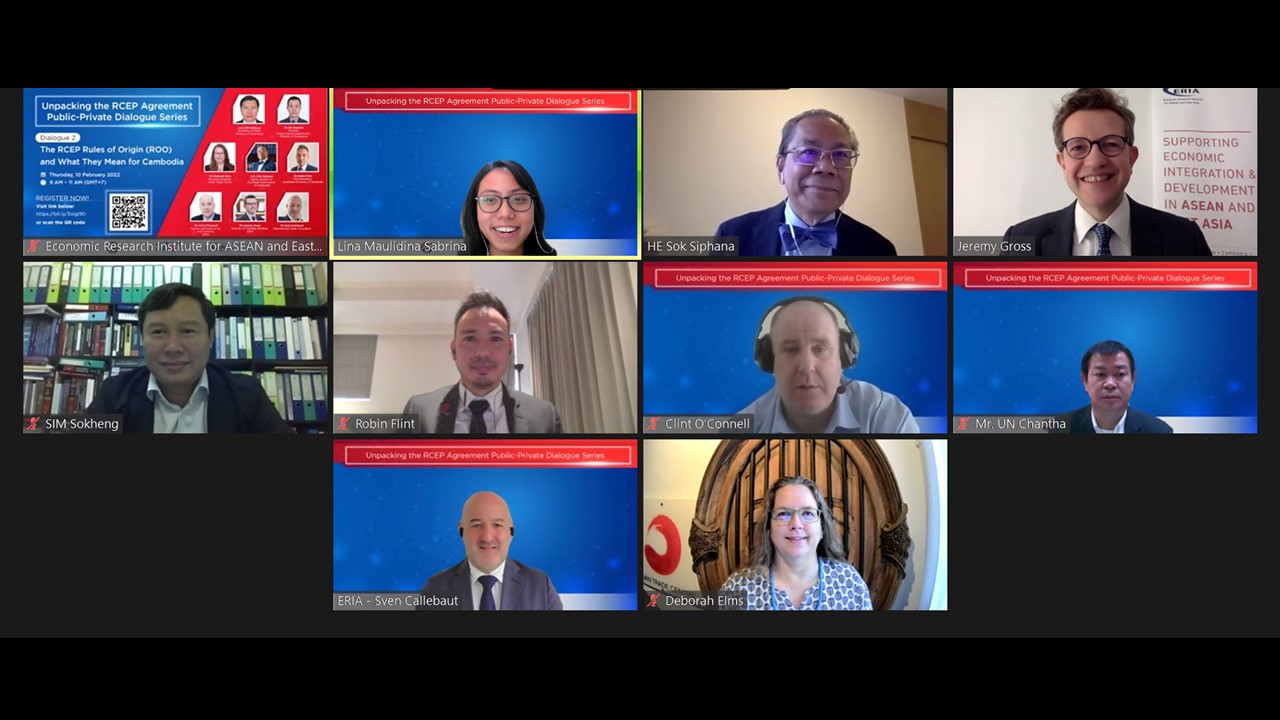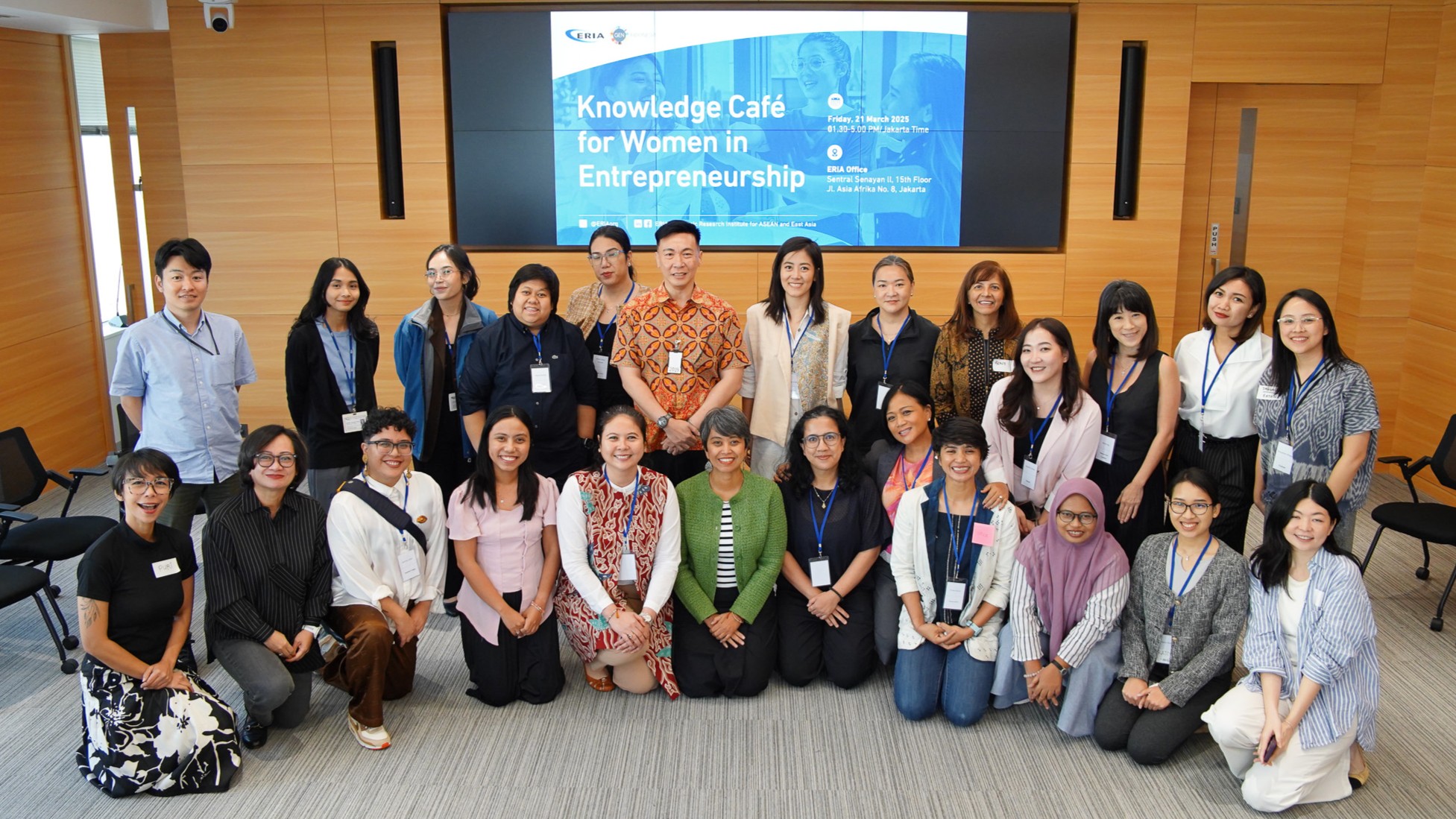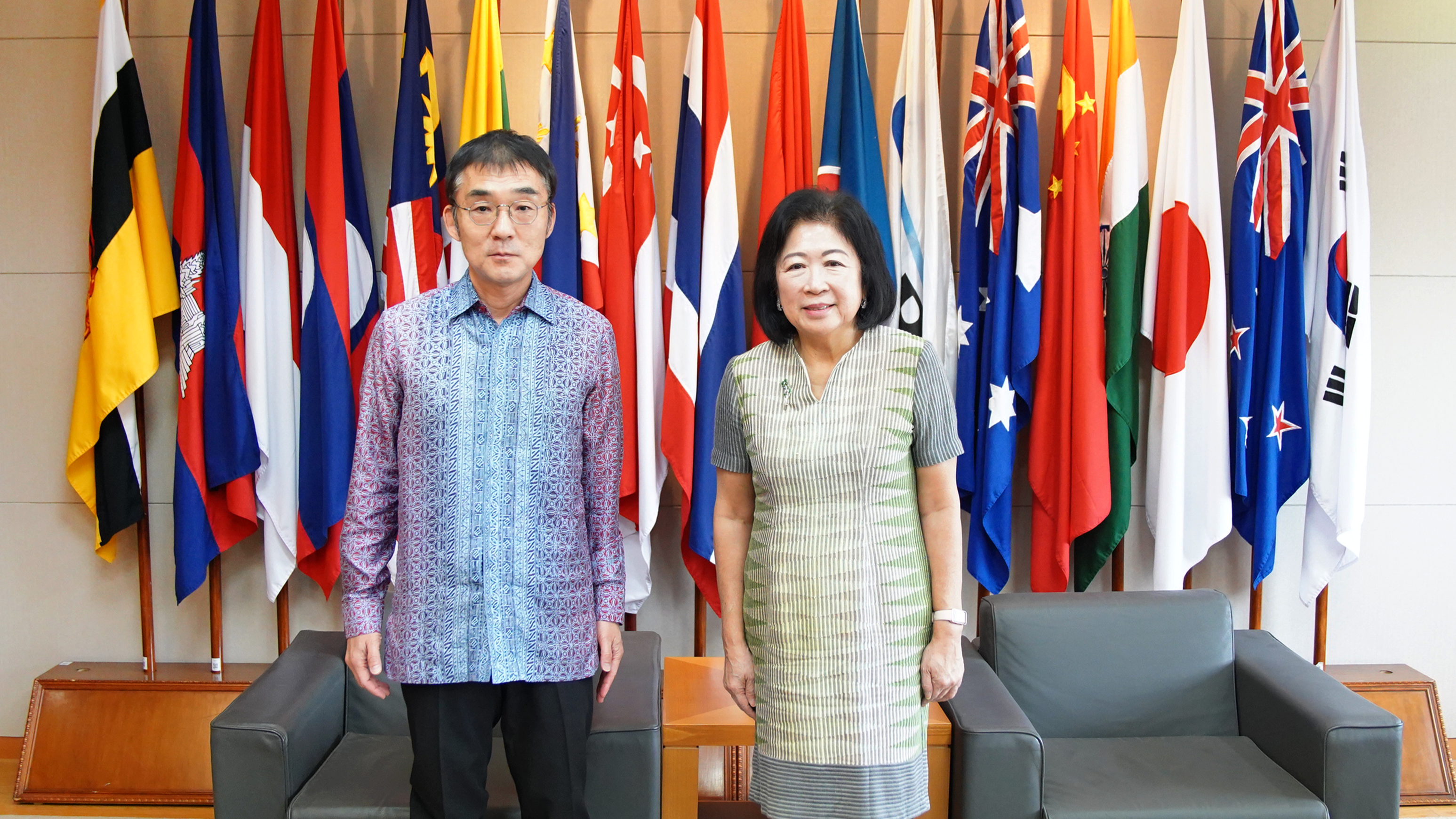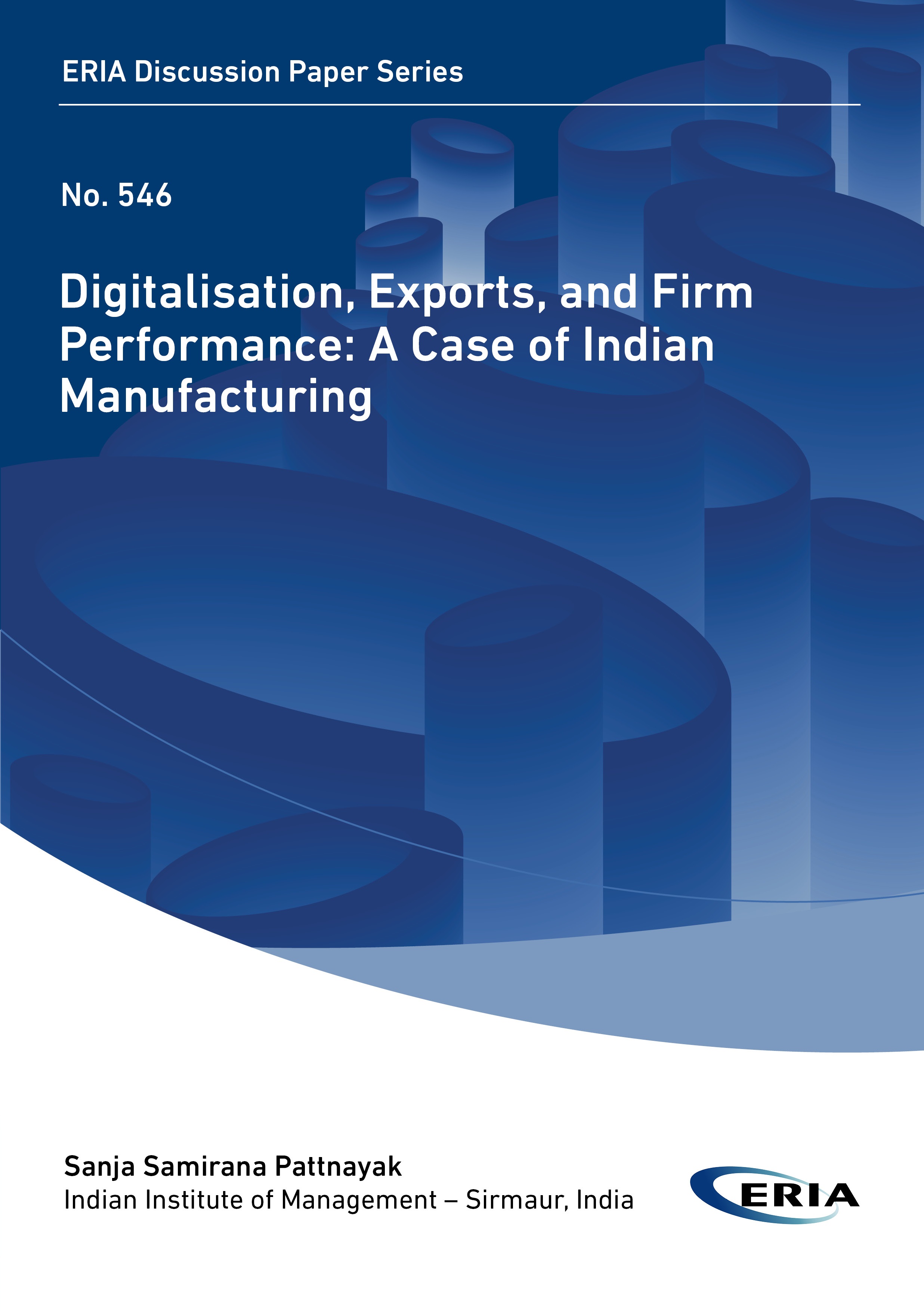RCEP Rules of Origin and What They Mean for Cambodia
Date
10 February 2022Category
WebinarShare Article:
Print Article:
Jakarta, 10 February 2022: The Regional Comprehensive Economic Partnership (RCEP) agreement entered into force on 1 January 2022 with 11 participating states. While expectations are high about the expected benefits of tariff elimination, they depend on compliance with a key component of the agreement: the rules of origin (ROO) chapter. ROO determine the origin of goods and whether they are eligible for preferential tariff treatment or not.
Co-organized by ERIA’s Capacity Building Programme and the Ministry of Commerce, Cambodia, this second Public-Private Dialogue ‘Unpacking the RCEP Agreement: The Rules of Origin (ROO) Provisions and What They Mean for Cambodia’ was held online on February 10th. With over 110 participants including trade experts and members of the public and private sectors, the webinar discussed key strategies to unlock the full potential of RCEP by understanding the rules of origin.
The webinar was opened by H.E. SIM Sokheng, Secretary of State, Ministry of Commerce (MoC), who highlighted the importance of public awareness about the ROO chapter. The MOC has been pro-active in its own effort to disseminate information about the benefits of RCEP through multiple media. He noted how ROO is crucial for Cambodian businesses as it will leverage their export activity and bring more investment to Cambodia, thus contributing significantly to domestic economic growth. He further mentioned how the government is active in providing assistance and guidance to Cambodian businesses wishing to understand procedures around RCEP ROO.
The first session, moderated by Sven Callebaut, International Trade Consultant, focused on the importance of ROO. Dr Deborah Elms, Executive Director of the Asian Trade Centre, explained the general benefits and challenges of RCEP and the rules that need to be applied to access these benefits. She gave examples from the food and textile sectors including goods which are and are not eligible to benefit from ROO’s two main principles: ‘wholly obtained goods’ and ‘substantial transformation.’
The discussion continued with Mr UN Chantha, Director of Export Import Department, Ministry of Commerce, who shared his observation on how the ROO applies to Cambodian-made products before and after the RCEP agreement. He highlighted key improvements of ROO under RCEP which include streamlining the operational certification procedure and having greater regional cumulation. Lastly, he noted efforts to train Cambodian officials are underway to support the business sector and inform them of the opportunities created by RCEP ROO.
The second session focused on the private sector’s perspectives on opportunities. Mr Clint O’Connell, Partner and Head of Tax and Customs, DFDL, Cambodia, discussed the importance for businesses and investors to understand ROO for unlocking the benefits. He explained that generally there is already a good level of understanding about ROO in some sectors whilst further outreach is needed for others, and to MSMEs in particular.
Mr Robin Flint, First Secretary at the Australian Embassy in Cambodia, continued the discussion by sharing his perspective of the RCEP’s rationale dynamics to support the global value chain through a set of tariff preferences. He highlighted the pivotal engagement between businesses and governments to tap RCEP potential, for instance the establishment of the single portal and business guide.
H.E. SOK Siphana, Senior Advisor to the Royal Government of Cambodia, delivered key take-aways from the Dialogue, and issues for on-going discussion. He highlighted the current dynamic of the Cambodian business sector, that majority of which is led by capable young business players. He also noted the importance of businesses receiving comprehensive understanding about RCEP through experiential learning and examples, access to trade advisors, and outreach from chambers of commerce.
Opening comments for the Dialogue were given by Mr Jeremy Gross, the Director of Capacity Building. The webinar was supported by the Government of Australia through the Department of Foreign Affairs and Trade.








